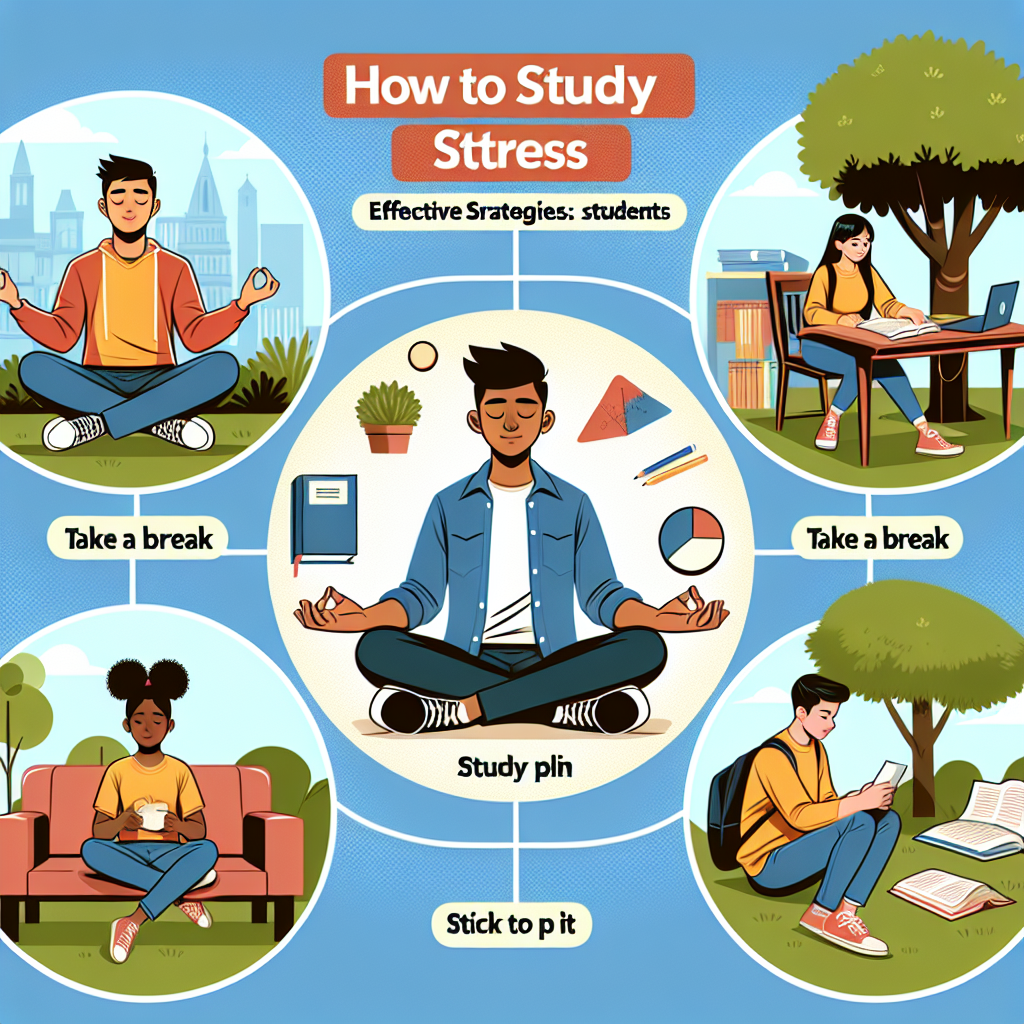Understanding Study Stress and Its Impact
Study stress is a common challenge faced by students of all ages. Juggling multiple assignments, exams, and responsibilities can quickly become overwhelming, leading to anxiety, reduced productivity, and even burnout. Recognizing the signs of academic stress is the first step toward effective stress management. In this guide, we’ll explore practical methods and proven strategies to help you manage study stress, boost your academic performance, and maintain your overall well-being.
Main Causes of Study Stress
- Heavy Workload: Multiple deadlines, projects, and exams.
- Poor Time Management: Struggling to allocate time efficiently.
- High Expectations: Pressure from self, family, or educators to perform well.
- Lack of Motivation: Difficulty in finding interest or purpose in studies.
- Personal Issues: Balancing social life, part-time jobs, or family responsibilities.
Recognizing the Symptoms of Academic Stress
Identifying stress early can prevent it from escalating. Common symptoms include:
- Constant worrying about exams or assignments
- Difficulty concentrating or remembering information
- Sleep disturbances and fatigue
- Headaches or stomachaches
- Loss of interest in hobbies or social activities
If you notice these signs, it’s crucial to take action and incorporate healthy coping strategies.
Effective Techniques for Managing Study Stress
1. Master Time Management
One of the most effective ways to reduce study stress is to create a realistic study schedule. Prioritize your tasks using a planner or digital tool, breaking larger projects into smaller, manageable steps. Allocate specific time blocks for reading, revision, and relaxation to maintain a healthy balance.
- Set clear goals for each study session
- Use productivity techniques like the Pomodoro method
- Review and adjust your study plan weekly
2. Practice Mindfulness and Relaxation Techniques
Incorporating mindfulness practices such as meditation, deep breathing, or progressive muscle relaxation can help calm your mind and reduce anxiety. Just ten minutes a day can make a noticeable difference in your stress levels and concentration.
- Try guided meditation apps or videos
- Take short breaks to stretch and breathe deeply
- Practice gratitude journaling to focus on positives
3. Stay Physically Active
Physical activity is a natural stress reliever. Regular exercise boosts endorphins, improves mood, and enhances cognitive function. Aim for at least 30 minutes of movement most days, whether it’s walking, cycling, yoga, or team sports.
4. Create a Positive Study Environment
Your study space impacts your ability to focus and learn. Choose a quiet, well-lit area free from unnecessary distractions. Keep your desk organized and personalize your space with motivational quotes or calming colors.
5. Seek Support and Connect with Others
Don’t hesitate to reach out for help if you’re feeling overwhelmed. Talk to friends, family, or academic advisors about your concerns. Joining study groups can also provide emotional support and new perspectives on challenging subjects.
Healthy Habits to Lower Academic Pressure
- Maintain a Balanced Diet: Nutritious meals can stabilize energy levels and improve mental clarity.
- Get Enough Sleep: Aim for 7-9 hours each night to boost memory and cognitive function.
- Stay Hydrated: Drink plenty of water throughout your study sessions.
- Avoid Multitasking: Focus on one task at a time for better productivity and reduced stress.
When to Seek Professional Help
If your stress becomes unmanageable, affects your health, or leads to persistent feelings of sadness or hopelessness, consider consulting a mental health professional. Early intervention can provide valuable coping tools and prevent further complications.
Conclusion: Take Charge of Your Study Stress
Managing study stress is a crucial part of academic success and personal growth. By adopting effective time management, practicing mindfulness, maintaining healthy habits, and reaching out for support, you can significantly reduce academic pressure and create a more enjoyable learning experience. Remember, stress is a natural response, but with the right strategies, you can stay resilient, focused, and motivated throughout your educational journey.
